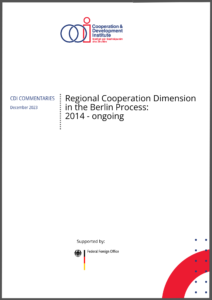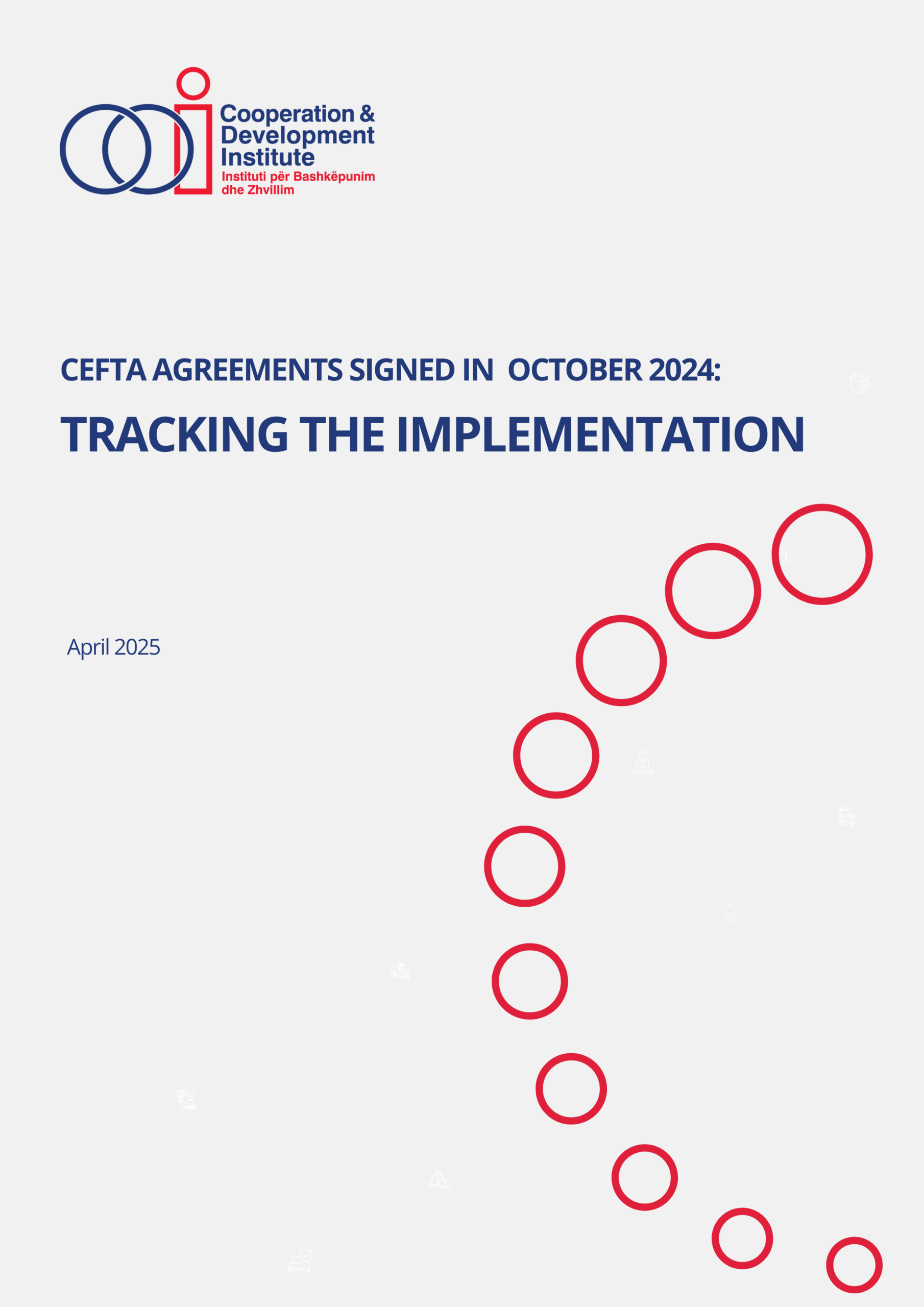Regional Cooperation Dimension in the Berlin Process: 2014 – ongoing

Update on Common Regional Market 4 Mobility Agreements (MAs)
December 1, 2023
CDI’s contribution to the “Adriatic-Ionian Region is You(TH)” conference
December 12, 2023While in 2014 the Berlin Process (BP) started with focus on bilateral disputes, quite soon it became clear that it was regional cooperation angle that was the way to progress. Gradually BP provided an alternative and a useful platform for WB6 to not only complete technically regional cooperation agreements, but also to sign and ratify them. Putting aside bilateral blockages proved useful in reaching agreements in six, proving than inclusive regional cooperation in the Balkans is feasible.
Meanwhile, while providing a welcome push and affirmation of local ownership in regional cooperation initiatives, the Open Balkan episode indicated the difficulty of designing, implementing and operating a viable regional cooperation endeavor that falls within contracting parties’ obligations towards the EU (such as the four freedoms) without – at least – associating EU to it.
The innovative format of “willing EU Member States” applied in the Berlin Process turbo-charged the regional cooperation component. The appointment of a Special Envoy by Germany and the subsequent strategy shift from bilateral disputes to inclusive regional cooperation, provided that missing elements that brought the signature of first CRM Mobility Agreements in November 2022 by all 6 countries.
Having achieved the signature of 4 CRM mobility agreements by end of 2023 in a situation when bilateral disputes are still ongoing (they are now ratified by both Kosovo and Serbia’s parliaments and have moved into the implementation phase), marks a shift of EU from the “accountability” approach towards “policy learning” when dealing with WB6 regional cooperation.
Tags: Connectivity, Common Regional Market, Good Governance, Western Balkans, SEE6, Civil Society





National Parliament and the Reform Agenda 2024-2027
Read more